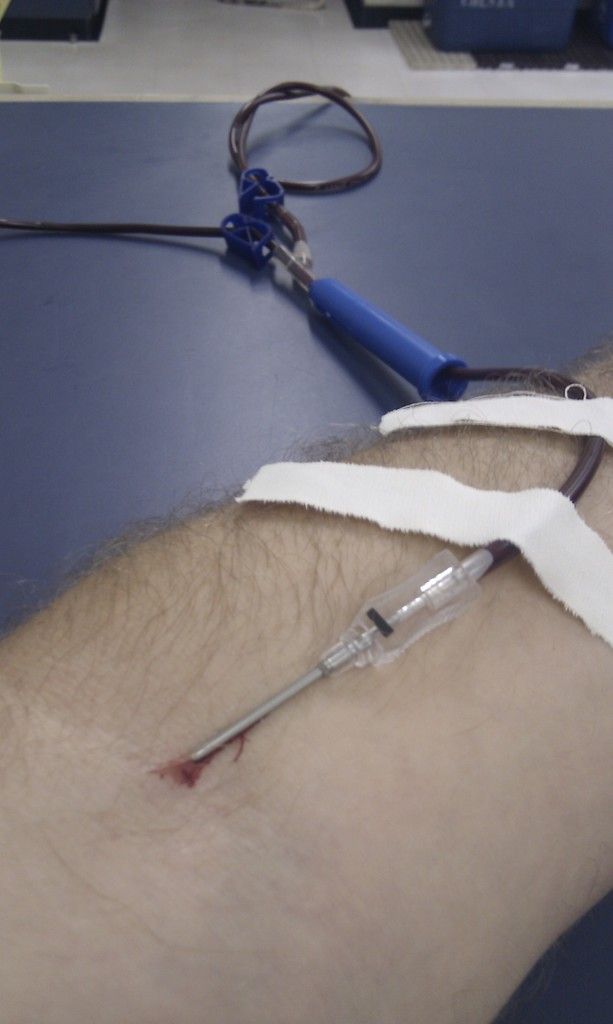Germany's Highest Demand Organ
Every year in Germany, more than 2000 kidney transplants are performed, but the number of people on the waiting list is a staggering 6000—not all of them make it through. Bettina Lange, a resident of Brandenburg's Brieselang, is one of the lucky ones. In 2009, her husband donated one of his kidneys to her, a selfless act that has given her a new lease on life.
Today, over 100,000 kidneys have found new owners in Germany, but the wait for a suitable organ can stretch for years, as Bettina's story illustrates. Dialysis, a procedure that filters toxins from the blood, is a temporary solution for many, but it's no replacement for a fully functioning kidney.
The First Step Forward
Seventy-five years ago, the first successful human-to-human kidney transplant was performed in a small US hospital in a Chicago suburb. The operation, performed by surgeon Richard H. Lawler, was groundbreaking, but the transplanted organ was eventually removed due to the body rejecting it. Despite this setback, it sparked a revolution in medical science.
In Germany, the first kidney transplant took place in 1963, with more long-term successes following. Today, recipients rely on two main sources for their new kidneys: loving donors and deceased donors.
Finding a Match
For those in need of a kidney, a willing donor can be a miracle worker. Friends, family members, or even romantic partners might choose to donate part of their own kidney. Bettina Lange and Federal President Frank-Walter Steinmeier are both examples of this selfless act. After thorough preparations, these transplants can offer a new chance at life.
However, many patients must rely on deceased donors, who provide the majority of transplanted kidneys. The organ distribution system, managed by Eurotransplant, ensures that organs are allocated based on medical necessity and geographical location.
The Long Wait
Despite the efforts to increase organ donation, Germany's donation rates remain low. In 2024, there were around 6400 patients on the waiting list for a kidney, with some estimates suggesting the actual need might be as high as 30,000 people. The waiting time between starting dialysis and surgery can be extensive, with studies suggesting an average of seven years for those aged 18 to 64.
The shortage of donors is a significant factor contributing to these long waiting times. Germany's opt-in organ donor system requires explicit consent for organ removal, which can sometimes be delayed due to family decisions or legal complications. Transplants from older donors are also subject to the "Old for Old" program, which prioritizes age-matched transplants but has a shorter lifespan.
A Changing Landscape
While the current system faces challenges, there are calls for change. The introduction of an opt-out system, where everyone is assumed to be a potential organ donor unless they choose otherwise, is being considered. Such a system was in place in East Germany until the early 1990s but was discontinued with nationwide legislation.
Advocates for this change argue that it could significantly increase the number of available organs and reduce waiting times. However, concerns about privacy and respecting individual autonomy remain.
The debate continues, as does the wait for many in need of a kidney transplant. Until a solution is found, the demand for kidneys will remain greater than the supply, leaving many hoping and waiting for a second chance at life.
[1] Elsevier Health Sciences. (2018). Atlas of Transplantation. Elsevier Inc.[2] Müller‐Dem Atzinger, M., Myszka, T., & Schnelle, C. (2014). Organ Acquisition and Allocation in Germany: The Role of Legislation, Practice, and Public Perception. American Journal of Transplantation, 14(8), 2164-2174.[3] Klingelhöffer, U. U. & Sieger, K. (2010). Transplantation Medicine in Germany. Nature Reviews Nephrology, 6(11), 635-645.[4] German Organ Transplantation Foundation. (2021). Facts and Figures 2021. German Organ Transplantation Foundation.[5] Schäfers, N. (2019). Handling Shortages: Organ Donation in Germany. Journal of Medical Ethics, 45(9), 515-519.
- A surge in vocational training programs could address the skilled labor shortage in the manufacturing industry.
- Understanding space-and-astronomy is crucial in our fight against climate-change, as it helps us predict weather patterns and natural disasters.
- The medical community is increasingly focused on mental-health, recognizing its role in overall health-and-wellness.
- Nutrition plays a vital role in the prevention and management of chronic-diseases, such as cancer and chronic-kidney-disease.
- Fitness-and-exercise, in conjunction with a balanced diet, can contribute to cardiovascular-health and help manage respiratory-conditions.
- Entrepreneurship continues to flourish in the retail sector, with business leaders embracing innovation and e-commerce.
- In the realm of environmental-science, addressing climate-change involves understanding energy consumption and exploring renewable resources.
- Mental-health is as crucial in interior-design as it is in any industry, ensuring spaces promote well-being and positive mood.
- Skin-care is an essential aspect of personal-finance, as it doesn't need to be expensive to maintain an effective routine and promote healthy skin-conditions.
- The European automotive industry is investing heavily in smart-home-devices and cybersecurity to stay competitive in the technology-driven world.
- Interdisciplinary studies combining science, finance, and environmental-science can provide valuable insights into sustainable investments and wealth-management.
- Small-business owners are recognizing the importance of home-and-garden improvements for their properties' curb appeal and overall value.
- Individual careers in the field of venture-capital require expertise in personal-finance and banking-and-insurance to make sound investment decisions.
- A solid understanding of investing and wealth-management is necessary for a successful real-estate business, considering the large sums involved in property transactions.
- The stock-market fluctuates based on various factors, including private-equity investments and debt-management strategies in small-businesses.
- Saving for the future is essential for financial stability, and budgeting and debt-management are crucial skills to master early in life.
- Wearables, such as smartphones and data-and-cloud-computing devices, are transforming the way we monitor and manage our health.
- Eye-health is vital for efficient learning, and regular eye exams can help identify and manage potential issues before they become severe.
- Hearing impairments can affect communication and social interactions, making it essential to address hearing health as part of a comprehensive wellness plan.
- Gardening, both indoors and outdoors, offers numerous mental and physical health benefits, from stress reduction to boosting immunity.
- Innovations in artificial-intelligence are revolutionizing various industries, from transportation to finance, offering unprecedented efficiency and precision.
- The study of industry leadership and diversity-and-inclusion is essential in navigating today's diverse and complex business landscape.
- Climate-change has far-reaching impacts on agriculture, making understanding skin-conditions and proper skin-care even more crucial for farmers.
- A balanced diet is crucial for maintaining good cardiovascular-health, which is valuable in a career dealing with environmental-science or any high-stress occupation.
- Smartphones and other gadgets have become essential tools in today's entrepreneurial ecosystem, allowing businesses to stay connected and competitive.
- The finance industry's focus on energy efficiency can reduce costs and mitigate risks associated with climate-change, making investments in clean technologies an attractive option.
- Lifestyle choices, such as regular exercise and a balanced diet, can help prolong and improve the quality of life for those diagnosed with chronic-conditions.
- In a world increasingly reliant on technology, understanding the basics of data-and-cloud-computing is paramount for personal finance management and wealth creation.








